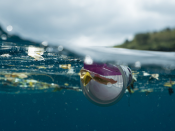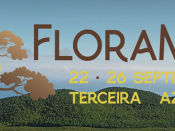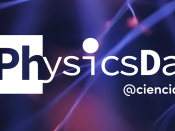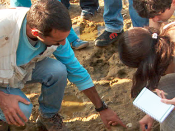Por Nelson O'Driscoll (Department of Earth & Environmental Sciences, K.C. Irving Environmental Science Center, Acadia University, Wolfville, Nova Scotia).
Big Meadow Bog (Brier Island, Nova Scotia, Canada) is a wetland ecosystem with a history of human disturbance. It was ditched for small-scale blueberry production in the 1950s, which significantly altered the hydrology of the system and resulted in vegetation changes and colonization by more than 3000 pairs of herring gulls by the 1980s. The blueberry venture never materialized. This talk will provide an overview of the history of this site and the complex effects of the hydrological and ecological changes on mercury cycling. Mercury is a persistent and bioaccumulative chemical that is present in many remote environments due to its ability to be transported long distances in the atmosphere. Wetland ecosystems are important “hot spots” for mercury in eastern Canada, providing anoxic environmental conditions that promote the bacterial methylation of mercury. Methyl mercury is the most biologically available form of mercury and the form which biomagnifies in food webs. Seabird guano is a well-documented biovector for metals (including mercury) and nutrients, which may indirectly affect mercury speciation.
To quantify changes in mercury mobilization and speciation in response to this biovector, groundwater samples were collected from this site as well as two reference bogs with similar geological and hydrological characteristics. The filtered groundwater samples were analyzed for total mercury, methyl mercury, and a suite of other water chemistry characteristics (pH, conductivity, anions, cations, and dissolved organic and inorganic carbon). Our results show significantly higher phosphate and methyl mercury concentrations in shallow groundwater water in Big Meadow Bog, compared to reference bog sites that are minimally impacted by avian biovectors. This elevated concentration of methyl mercury could potentially pose a threat to the local ecosystem and wildlife populations. Big Meadow Bog is currently undergoing restoration to reverse the effects of the ditching and re-establish an endangered plant species; these changes will likely again alter the presence of biovectors and ultimately the fate of mercury in the system.
About the speaker: Dr. Nelson O’Driscoll is a Professor at Acadia University in Wolfville, Nova Scotia, Canada. He is also the Director for the Centre for Analytical Research on the Environment (CARE). He is currently on sabbatical and a visiting professor at the Università Degli Studi di Trieste in Trieste, Italy. His research examines the fate and effects of mercury in ecosystems.d

























